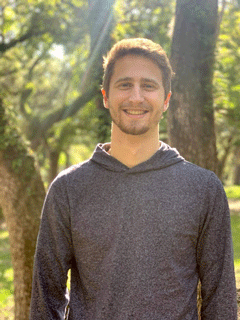 Tell us about yourself: your background, major, graduation year, and interests?
Tell us about yourself: your background, major, graduation year, and interests?
My name is David Cote, and I am a senior majoring in music therapy with a minor in psychology. I am from Chelmsford, Massachusetts, and though I still can hardly believe it, I will be graduating this spring in 2021! Music has been a constant throughout my life. Starting when I was very young, I have always been strongly affected by music. As a baby, I am told that I was extremely picky about what music I wanted to hear, throwing tantrums whenever something other than my favorite artist was being played. Fortunately, I grew out of that habit and enjoy listening to all kinds of genres and expanding my tastes.
I would not be where I am now without the support of my family and some amazing musical mentors. One of my fondest early musical memories was making a lyric book with my dad (though he did most of the work) for my favorite songs by The Beatles and singing them in the car with my grandma. Though I had always enjoyed listening to music, it was receiving the Guitar Hero video game as a gift that sparked my passion for learning instruments. I rocked through the ranks of the game and soon needed a new challenge. So, my parents signed me up for electric guitar lessons, and I started playing trombone in middle school band. Guitar and trombone are still my primary instruments, but I have fun learning other instruments too like the euphonium, bass, ukulele, and I sing in the Frost Symphonic Choir as well.
What inspired you to study music therapy and psychology?
It was the summer before my junior year of high school when I first heard about music therapy. I remember the conversation distinctly. Marching band camp was about to start; my co-drum majors and I were having dinner with the band directors at a local pizza place, discussing the upcoming season as well as our personal plans for the future. At this point, I had no set plans but was thinking about pursuing biology or psychology. The main problem was that I could not see myself working behind a desk or in a lab. I expressed to my band directors: “I wish every class was band!” One of them suggested looking into music therapy, where I could combine my interests in science and psychology while continuing with music. I did some research about music therapy, and the more I read and watched, the more I was drawn to learn more. Using evidence-based musical interventions to help people physically, cognitively, emotionally, spiritually, and musically was (and is) so compelling to me. I have always been fascinated by human psychology and behavior, especially thoughts and emotions, and being able to incorporate music seemed too good to be true. I looked for schools with music therapy and found the University of Miami. I fell in love with the school; and from that point on, I made it my goal to attend the University of Miami and study music therapy.
Now, a little more than five years later, I have almost reached the end of that goal. I have loved every day of this degree program, and not once have I doubted that music therapy is the right path for me. Of course, I have been challenged and stretched, I have struggled and been frustrated along the way, but each step I take reaffirms my commitment to becoming a music therapist.
How do you stay inspired during the pandemic? What projects are you working on now? I see that you are part of a community arts program. Tell me about that.
Staying inspired during the pandemic has been tough at times. Thankfully, several opportunities kept me interacting with others and involved music and music therapy. Before the pandemic I worked at Community Arts Program (CAP) as a music theory teaching assistant for students from 6 to 15 years old. Once the quarantine started, CAP transitioned to online instruction and now I teach guitar lessons and do individual music theory tutoring sessions. This has really helped me stay engaged with music and learn to teach online lessons—a very different experience. In addition to CAP, I also started volunteering with the University of Miami Center for Autism and Related Disabilities (CARD) by leading online music sessions for teenagers with autism. I have continued leading these CARD music sessions virtually for almost a year now, and recently did my first in-person, masked, socially distanced session.
What other interests do you have and why do you enjoy them?
Since my later years in high school, I have been really interested in mental health, spirituality, mindfulness, and general self-improvement. I have also taken up learning Japanese (spurred by my fondness for anime). I started meditating four years ago and since then have attended two 10-day, silent Vipassana meditation courses. My meditation practice has changed my life in many significant ways. I would recommend to anyone who has ever considered trying to meditate to give it a try. Start small, be patient, and be kind to yourself. The rewards are bountiful. I would consider myself a fairly “internal” person. I am pretty quiet and introverted, and I like activities such as meditation where I can learn to simply be with myself and live mindfully in every moment. Another practice I started last year is the Chinese mind-body-spirit exercise called Qigong. Similar to meditation, Qigong is all about awareness of the mind and body but focuses more on cultivating life energy (Qi) through holding or moving through certain postures. Both practices have been incredibly beneficial to my overall well-being, especially during a pandemic, helping me be more aware of, and comfortable in, my own mind and body.
What goals do you have once you graduate and how do you think Frost will help you achieve them?
Following the completion of my coursework, I look forward to my clinical music therapy internship at Creative Arts Therapies of the Palm Beaches, passing the board certification exam, and becoming David Cote, MT-BC (music therapist board-certified)!
This July I start my six-month clinical internship, where I will transition from facilitating one hour per week in my music therapy practicum (part of my coursework) to having my own full-time caseload of clients by the end of the internship. I see myself working with children with special needs in the future, but I am open to any opportunities that come my way and expanding my clinical skills so I can work with any population. My time at UM and the Frost School of Music has pushed me to grow as a musician, clinician, teacher, and person in countless ways. I am so grateful to have had such wonderful experiences because of the music therapy program and the connections I have made with faculty members and other students. The Frost music therapy department is exceptional, and I am confident that I can turn to my peers and teachers for support in the future.



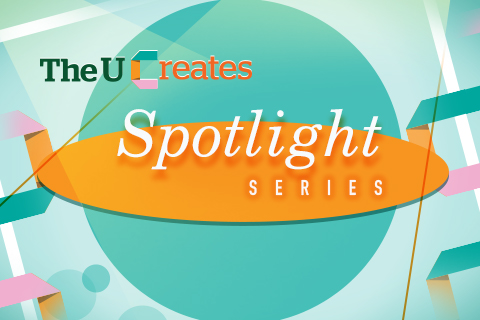
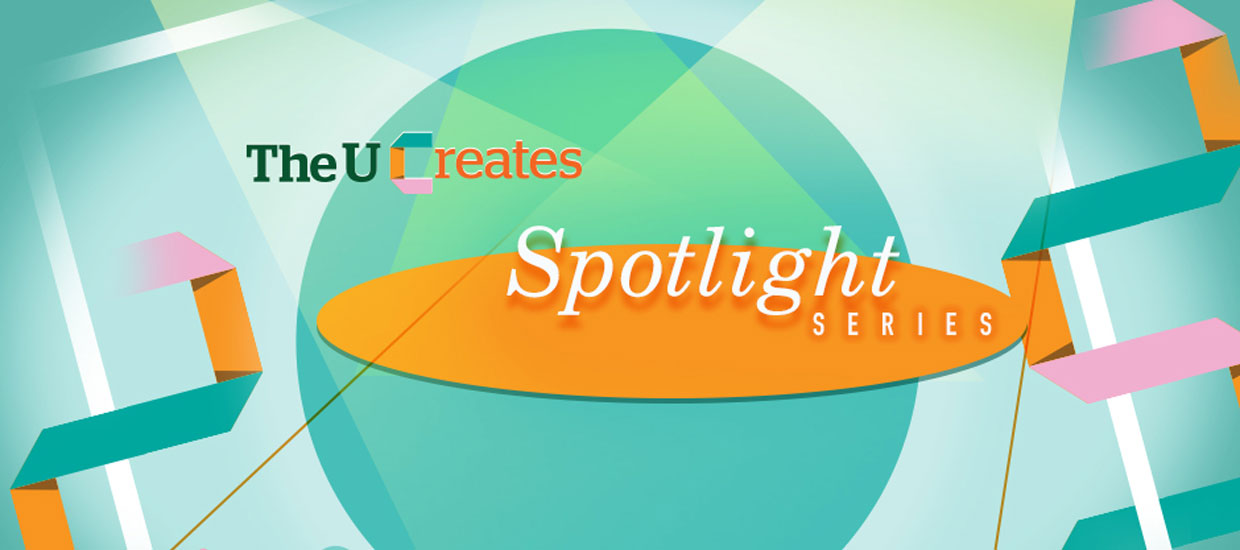
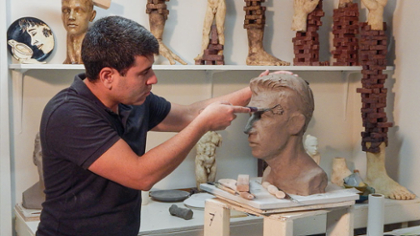 What sparks your creativity?
What sparks your creativity?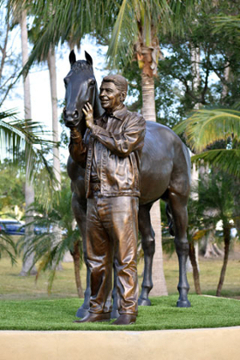 What is one thing you hope your students learn in your courses and take to their future careers?
What is one thing you hope your students learn in your courses and take to their future careers?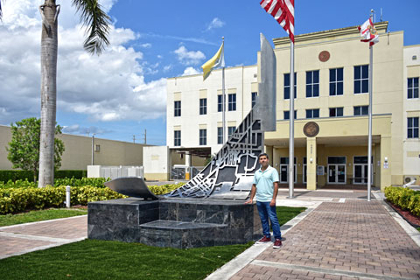
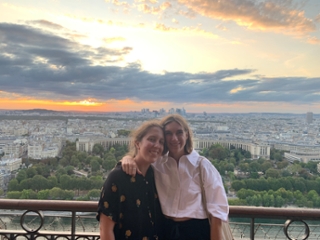 Maria Paula Arboleda and Julie Peley are both first-year Master of Fine Arts students. Together, they have produced the multi-award-winning short film, “Tacet,” about an aspiring writer who starts to have doubts about her romantic relationship as she relives memories through her writing. The film has won awards in a variety of festivals, including the Miami Film Festival, Vegas Movie Awards, Direct Monthly Online Film Festival, and the Indie Short Festival.
Maria Paula Arboleda and Julie Peley are both first-year Master of Fine Arts students. Together, they have produced the multi-award-winning short film, “Tacet,” about an aspiring writer who starts to have doubts about her romantic relationship as she relives memories through her writing. The film has won awards in a variety of festivals, including the Miami Film Festival, Vegas Movie Awards, Direct Monthly Online Film Festival, and the Indie Short Festival.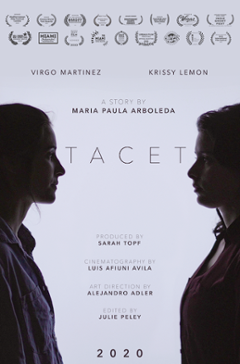 the award-winning short we have today. We are thankful because this short has allowed us to visit festivals such as the Miami Film Festival and the Next Generation Indie Film Festival in L.A. I've had a great experience working with Maria because she is a director who knows what she wants but is also open to creative input from others. I'm really thankful that when I was editing "Tacet," she wasn't there with me watching every cut. She gave me space to work by myself; and when I felt ready, I would call her to show what I had. And she would give me her thoughts. I believe this allowed me to grow as an editor because I felt her trust.
the award-winning short we have today. We are thankful because this short has allowed us to visit festivals such as the Miami Film Festival and the Next Generation Indie Film Festival in L.A. I've had a great experience working with Maria because she is a director who knows what she wants but is also open to creative input from others. I'm really thankful that when I was editing "Tacet," she wasn't there with me watching every cut. She gave me space to work by myself; and when I felt ready, I would call her to show what I had. And she would give me her thoughts. I believe this allowed me to grow as an editor because I felt her trust.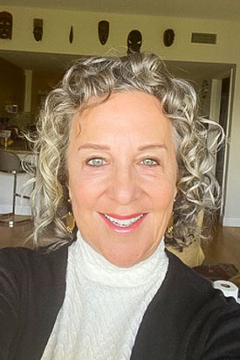 My role has been as a museum educator. For the past 16 years, my title at the Lowe Art Museum has been school programs coordinator. I started the Fine Art of Health Care program in 2019. I had been trained in a museum guiding/teaching methodology called Visual Thinking Strategies. A colleague, Alexa Miller, co-founded a program at Harvard Medical School using this methodology and was instrumental in helping me start the Fine Art of Health Care. I am now the director of the Fine Art of Health Care program.
My role has been as a museum educator. For the past 16 years, my title at the Lowe Art Museum has been school programs coordinator. I started the Fine Art of Health Care program in 2019. I had been trained in a museum guiding/teaching methodology called Visual Thinking Strategies. A colleague, Alexa Miller, co-founded a program at Harvard Medical School using this methodology and was instrumental in helping me start the Fine Art of Health Care. I am now the director of the Fine Art of Health Care program.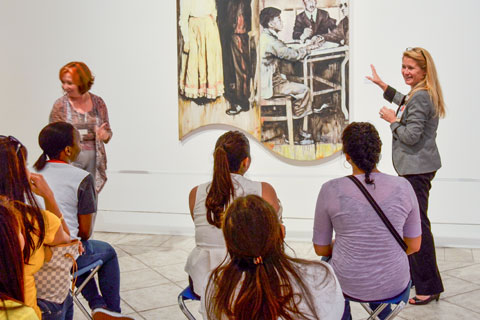 I’m hoping that our workshops help students realize the importance of self-care—coming to the Lowe Art Museum, getting out of their high-stress environments, slowing down, stepping back, and listening to their peers. Our workshops are inter-professional—nursing, medicine, physical therapy, psychology—in which students can witness how a group of people can look at the same works of art in the museum and have totally different perspectives. Art is open to multiple interpretations. Coming to a differential diagnosis or coming up with treatment plans for a patient may take different perspectives. Team-based medicine is out there. Patients are often working with not only different specialists but they are also working with nurses, physical therapists, social workers, etc.
I’m hoping that our workshops help students realize the importance of self-care—coming to the Lowe Art Museum, getting out of their high-stress environments, slowing down, stepping back, and listening to their peers. Our workshops are inter-professional—nursing, medicine, physical therapy, psychology—in which students can witness how a group of people can look at the same works of art in the museum and have totally different perspectives. Art is open to multiple interpretations. Coming to a differential diagnosis or coming up with treatment plans for a patient may take different perspectives. Team-based medicine is out there. Patients are often working with not only different specialists but they are also working with nurses, physical therapists, social workers, etc.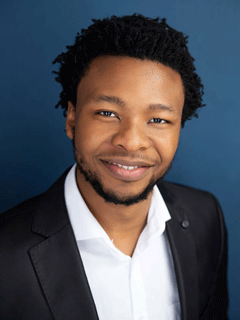 Tell us about yourself.
Tell us about yourself.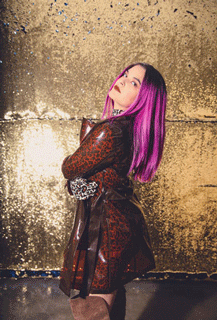 Tell me about yourself.
Tell me about yourself. Tell us about yourself: your background, major, graduation year, and interests?
Tell us about yourself: your background, major, graduation year, and interests?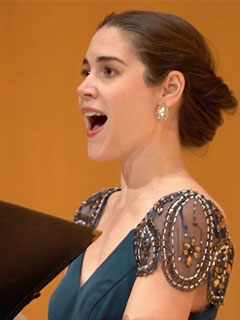
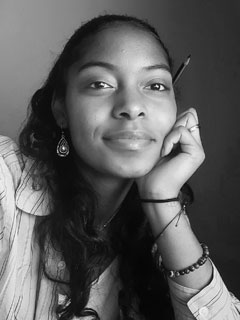 Tell us a little bit about yourself (name, major, graduation year, interests, what makes you, you?)
Tell us a little bit about yourself (name, major, graduation year, interests, what makes you, you?)
